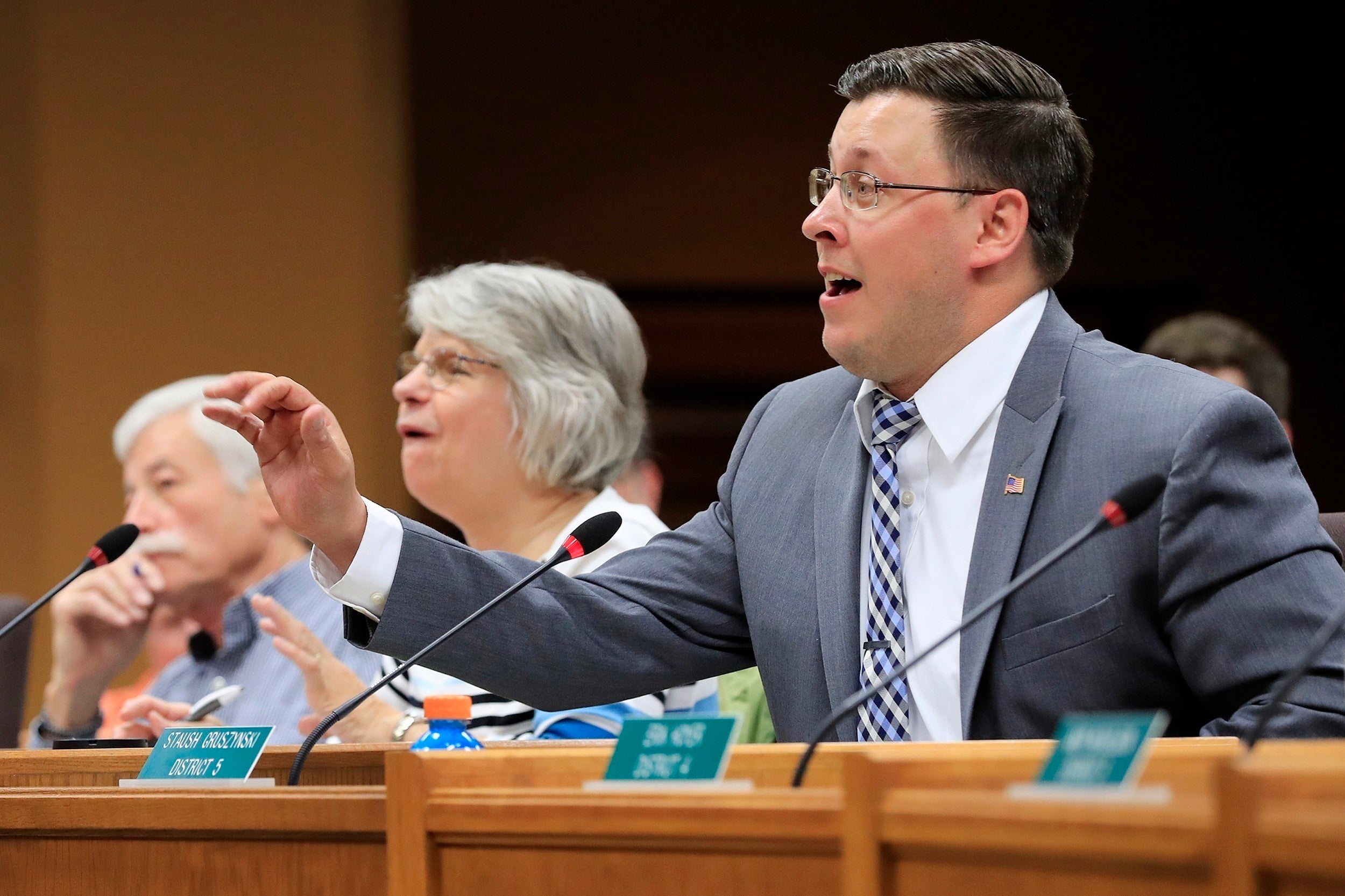Wisconsin court sides with AP, others in open records case
A Wisconsin appeals court has ruled that the state Assembly violated the open records law when it initially rejected, then fulfilled with redactions, documents sought by The Associated Press and three other media outlets

A Wisconsin appeals court ruled Thursday that the state Assembly violated the open records law when it initially rejected, then fulfilled with redactions, documents sought by The Associated Press and three other media outlets related to sexual harassment allegations against a former legislator.
The AP, the Wisconsin State Journal, The Capital Times and the Milwaukee Journal Sentinel sued in March 2020 after their open records requests seeking copies of the complaint against then-state Rep. Staush Gruszynski and other related documents were denied by the clerk of the Assembly.
The 4th District Court of Appeals on Thursday upheld a lower court's ruling from 2021 in favor of the AP and others. The appeals court agreed with a circuit court's ruling that Assembly leaders misapplied a balancing test, erroneously finding that the complainant’s privacy outweighed the public’s interest in the documents.
The appeals court also found that the Assembly violated the open records law by redacting certain information when it released the requested records eight months after denying the request. The court said the media outlets were entitled to attorneys' fees.
Assembly leaders could ask the state Supreme Court to review the case. Ted Blazel, the current Assembly chief clerk; Angela Joyce, a spokesperson for Assembly Speaker Robin Vos; and their attorney Andrew Phillips have not responded to emails seeking comment.
Gruszynski, a Democrat, represented Green Bay. A legislative employee alleged that he sexually harassed her in October 2019 at a bar in Madison. The media outlets filed their requests for the documents that December.
According to the lawsuit, the manager of the Legislature’s human resources office said in an email to the media outlets that the office treats internal employee complaints as confidentially as possible and that the woman’s privacy outweighed the public interest in the documents.
Wisconsin law allows records custodians to apply such balancing tests. The media outlets argued that the state’s open records law presumes complete access to government records and that denial of requests is not in the public interest. They maintained that then-Assembly Clerk Patrick Fuller and the Assembly had no valid basis for denial.
The Assembly released redacted versions of the records after the woman gave The Capital Times details of her complaint. The media outlets challenged the redactions as part of the lawsuit. Only one redaction, related to private health information, was justified, the appeals court said.
The documents revealed that Gruszynski told the woman as they sat at the bar that he had had his eye on her for years and asked her to have sex with him. She refused, reminding him that he was married and that sex between a legislator and an aide would be inappropriate. She then left the bar.
Gruszynski said in an earlier statement that he was “black out drunk” during the encounter. He lost a primary for his seat in 2020 and is no longer a legislator.
Bookmark popover
Removed from bookmarks